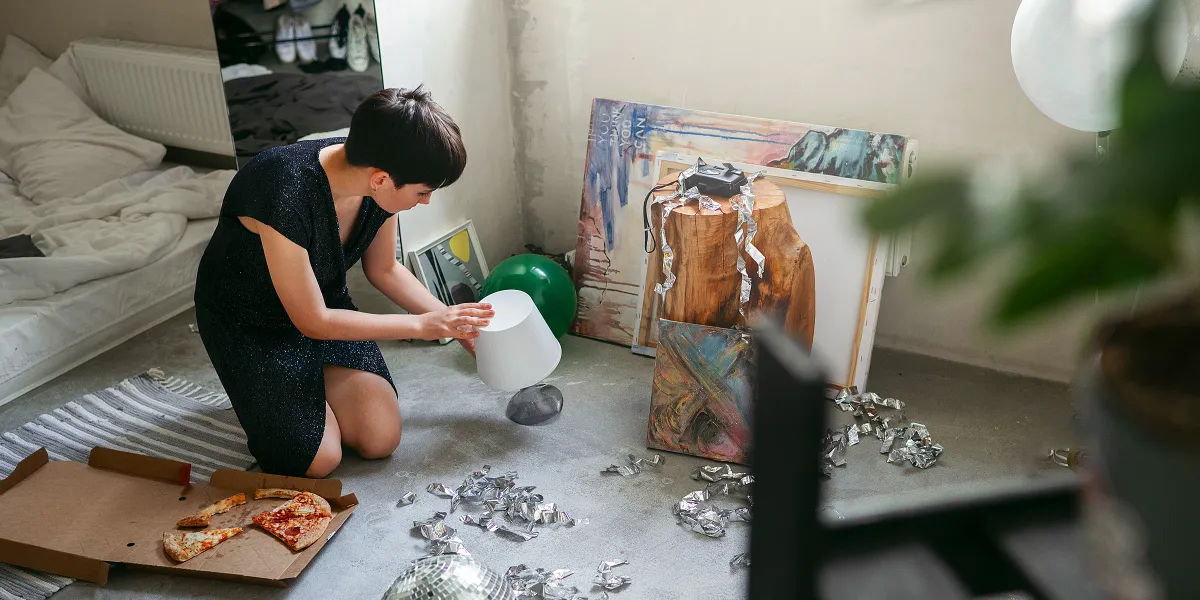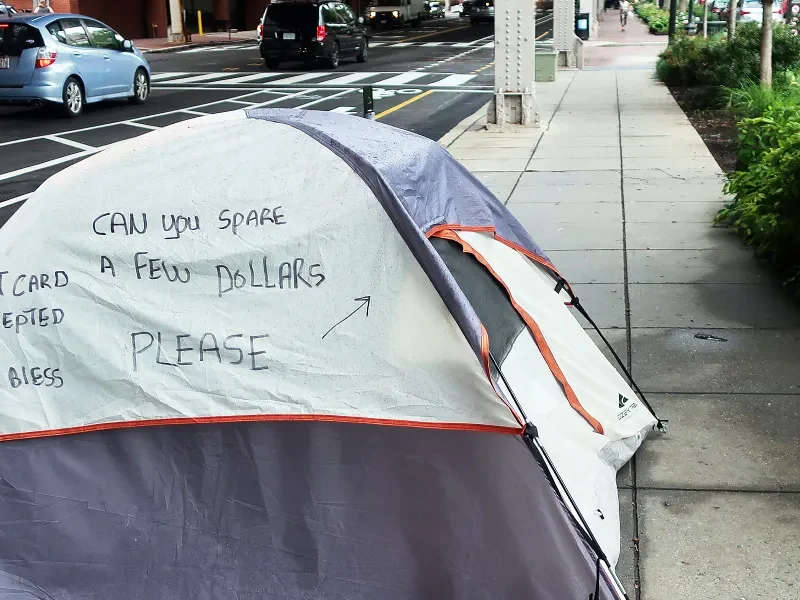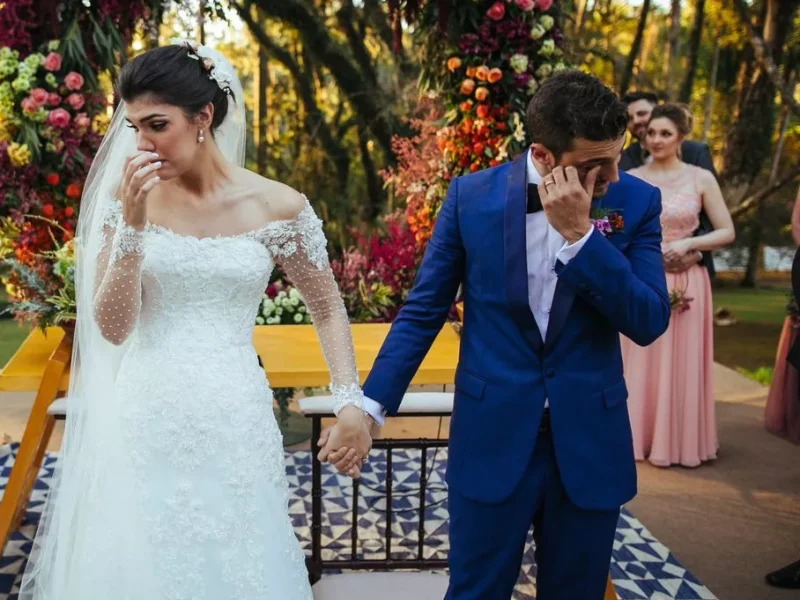When Anna reluctantly lets her sister borrow her beloved home for her nephew’s birthday, she expects a simple celebration. Instead, she returns to devastation, betrayal, and silence that cuts deeper than any mess. But as the dust settles, Anna discovers the true cost of family, and the strength of reclaiming her sanctuary.
There are three things you should know about me: My name is Anna, I’m 35, and my house is the one thing in this world I am truly proud of.
It’s not the biggest or fanciest house on the block. It’s not tucked behind wrought iron gates or wrapped in custom millwork. But it’s mine. I bought it on my own, after over a decade of sacrifice that came with renting dingy apartments, turning down trips, skipping meals, and working two jobs until I could finally put the down payment together.
But the day I signed the mortgage papers, I cried like a child. Not just from pride, but from pure, breath-stealing relief.
But buying the house was only the beginning.
The place had good bones, but the soul? That took work. And I poured myself into it. Late nights, early mornings, weekends spent at the hardware store, bruised knees from sanding baseboards, and paint in my hair more often than not.
I wasn’t flipping a house. I was building a home.
Every choice mattered. I stood in the lighting aisle for hours, comparing the warmth of different bulbs. I ordered tile samples and laid them out under sunlight just to see how they changed at noon versus dusk.
The living room is soft beige, with sage green accents I found in a fabric swatch and couldn’t get out of my head. The hallways are cream, catching the afternoon light like something out of a dream.
I saved for each piece of furniture, one item at a time. There were no impulse buys. Just patience. I didn’t rush. I just wanted to get it right.
But the backyard… that was my sanctuary.
I dug every bed by hand. I planted roses in deep reds and blush pinks, I planted lavender along the walkway, and trained clematis vines to twist up the white pergola. I spent Saturdays with dirt under my nails and a podcast in my ears, humming to myself as the sun sank low.
That garden taught me patience, and it gave me peace. It was the one place I could measure progress not by hours, but by blooms.
Some mornings I sit under the pergola with a mug of coffee and a croissant. The roses sway gently in the breeze, and I swear I can hear the world breathe.
So when Lisa called late that night, her voice sharp and urgent, I already had a bad feeling.
“Anna, we’re in trouble, Sis,” she said. “Jason’s birthday is this weekend, and every place is booked or ridiculously expensive. You don’t mind if we use your house, right? You’re not going to say no, right? Our house is way too small, and I’m losing my mind trying to figure it out.”
“Lisa,” I began and then paused. “You know I’m not going to be here… Maybe we could celebrate after I get back from my trip—”
“No! Anna!” she exclaimed. “It has to be the day of. Jason’s been counting down for months… I don’t want him to think that we’ve forgotten about him. Anna, if we tell him that we’re moving his celebration, he’ll be devastated. You remember what it was like to be a kid.”
And just like that, I felt the first crack splinter down my spine. I didn’t know it yet, but that was the sound of my boundaries starting to break.
“Lisa…” I hesitated. “The house—”
“Is absolutely perfect,” she said, interrupting me. “It’s got space for the kids to run around, the backyard is beautiful, and I’ll clean up everything after. You won’t even know we were there. Promise. I just need the keys. That’s it.”
I closed my eyes and pictured Jason. My seven-year-old nephew with his gap-toothed smile.
“Auntie Anna!” he’d squeal every time he saw me. That boy had my heart in his little hands. He always had. And I knew, without question, that disappointing him would feel like breaking something inside me.
“Okay,” I said quietly, the words thick in my throat. “But Lisa… please, promise me something. Be careful. I just finished everything here in the house. I’m trusting you.”
Even as I said it, I felt like I was handing her more than keys, I was handing her the heart of everything I had built. I thought about writing out instructions or setting rules, but I didn’t want to seem controlling. I chose to trust her, even when something in me said I shouldn’t.
“You got it!” she chirped, already sounding relieved. “It’s going to be magical. Jason’s going to be so happy. You’ll come back and it’ll be like nothing even happened.”
I wanted to believe her. I wanted to believe that the person who shared my childhood would treat my home with respect. I hung up, but something still twisted in my gut. Not fear… just unease.
Still, I brushed it off.
“It’s all going to be fine, Anna,” I told myself as I made a grilled cheese sandwich.
Except, of course, it wasn’t fine. It never is, when you ignore the voice inside that already knows the answer.
Two days later, I pulled into my driveway. And right away, I knew something was off. A limp balloon hung from the fence, half-deflated, bobbing in the wind like it had given up. The front door wasn’t even closed. It stood cracked open, like an afterthought.
“Please, no,” I muttered under my breath, reaching for the handle with a sinking feeling.
I stepped inside, and the smell hit me before anything else. The smell of old, greasy food, disgustingly sweet juice, and other rancid food took over the place. It was overwhelming and nauseating.
I stopped cold.
The beige rug I’d agonized over was stained in blotches of red and purple. I could almost see the hours I’d spent saving for it unraveling in those stains.
“What the hell is this?” I asked the empty house. “Grape soda? Kool-Aid?”
My cream-colored couch was covered in crushed cookie crumbs, lollipop sticks, and what looked like mashed-up cupcakes. There were sticky fingerprints streaking the walls in wide swipes, like little ghosts dragging their hands through fresh paint.
I stared at the coffee table. That was another chaotic mess. There were plastic cups everywhere, soda bottles tipped sideways, their puddles of dried sugar etched into the wood like scars.
And the vase.
The beautiful glass one I’d bought from a flea market with the pale green tint? It was shattered on the floor. I remembered the vendor’s smile when he sold it to me, telling me it was “meant for good rooms.” Now it was just shards.
And even the floor wasn’t safe. Water had seeped deep into the boards, curling the edges of the hardwood.
“Oh my God,” I whispered. My voice sounded small and foreign.
I walked forward slowly, like I was stepping into someone else’s nightmare. I made my way, dazed, into the kitchen.
The counters were piled high with trash. There were paper plates, pizza crusts, greasy napkins, half-empty bottles of orange soda. And of course, nothing had been bagged into trash bags. No one had even tried to clean up.
The smell hit harder here. It was thick, sweet, and sour all at once, like a party that had long since died and been left to rot. The sink overflowed with dishes, and the faucet still dripped. When I opened the fridge, I saw a lopsided cake shoved into the middle shelf, its blue and green frosting smeared across the glass like someone had dragged it with their sleeve.
I closed the door slowly and swallowed hard.
But it was the backyard that truly took my breath away.
The lawn I had nurtured into a soft, green carpet was reduced to a patchwork of brown mud and flattened grass. The rose bushes, my roses, had been ripped out of the earth, roots and all.
It felt like someone had torn pieces of me up right alongside them.
They were left discarded in a heap, like dead weeds. Balloons hung deflated from the pergola I had built by hand, now streaked with icing and smudged with fingerprints. Candy wrappers fluttered in the breeze. Party hats were crushed into the soil. Toys were scattered across the yard like debris after a storm.
I stood frozen on the threshold, handbag still in hand, my fingers trembling.
When I finally found the strength to take out my phone and dial, Lisa answered on the third ring, her voice bright and completely unaware.
“Hey! You’re home!” she said. “How was the trip? I hope you got some of that saltwater taffy from the airport that everyone is talking about.”
“Lisa,” I said, I could barely find my own voice. “My house is ruined.”
There was a pause.
“Oh, Anna,” my sister said with a dismissive sigh. “Don’t be so dramatic. It was just a kid’s party. Sure, there’s a bit of rubbish to bag up and some washing to do. But it’s not the end of the world.”
“There are stains on everything,” I said slowly. “My garden is destroyed. My couch… Lisa, there’s melted wax on the fabric and stains that can never be removed. What the hell were you thinking?”
“Come on,” she said, laughing. “So some juice got spilled. So what? That’s what happens when you have kids. You wouldn’t understand, unfortunately.”
“I wouldn’t understand?” I repeated, heat rising in my throat. “I trusted you. I asked you to take care of my home. You promised. And this is what you’ve done?”
She didn’t even pause.
“Well, then maybe you shouldn’t have such high expectations for a house that’s meant to be lived in,” she said.
“What?” I gasped.
“Face it, Anna,” Lisa continued. “You live alone in this big, fancy place. You have no kids, so there’s no real responsibilities. You could’ve offered it to us long ago. Jason deserved to celebrate in a place like that. You don’t even need it!”
I’d heard bitterness in her voice before, but this felt deeper, like jealousy that had been festering for years finally slipped through the cracks.
“So… you’re saying… you trashed my home on purpose?” I asked, my jaw clenched.
She didn’t deny it. Not really.
“You have no idea how hard it is to raise a child in a tiny house. We thought maybe if you saw what a burden a house like yours is, you’d finally get it. Honestly, Anna, maybe you’d be better off in a smaller place. Something like ours. Something more realistic.”
I ended the call before I could scream.
The silence after was worse than shouting, it pressed against my chest like a weight I couldn’t lift.
For the next few days, I didn’t cry. I didn’t scream or fall apart. I just… functioned. I went into damage control, because I had to. Because if I stopped moving, I was afraid I’d collapse under the weight of it.
I hired a professional cleaning service. The lead technician knelt down beside the rug, running a gloved hand over the dried stains, and looked up at me with a soft shake of his head.
“These rugs are done for,” he said gently. “And the upholstery’s ruined. We can’t get all that out.”
I nodded, swallowing the lump in my throat.
“Just… do what you can.”
I paid for deep cleaning. Then for replacements. By the end of it all, I’d spent over $3,000 just fixing what Lisa had destroyed. Every receipt felt like a receipt for betrayal, line items written in my sister’s handwriting.
The garden took even more effort. I hired landscapers to replace the roses, re-level the lawn, and haul away the muddy debris. The pergola had to be resealed. The patio chairs were warped beyond repair. I bought new ones.
And Lisa? She never offered a cent. Not even an apology.
Two weeks later, she finally texted me.
“I hope you’re not still mad! Jason had the best birthday ever! You should be happy you helped!”
I stared at the message, speechless. My hands actually shook.
Then, two months after the party, my phone rang.
Lisa.
“Did you do something to my house?!” she shouted.
“What on earth are you talking about?”
“Our kitchen flooded, Anna!” she snapped. “The whole first floor’s a mess. The walls are ruined and mold is already starting. It’s going to cost thousands! I know you did this! This is your revenge, isn’t it?”
Lisa always needed someone to blame when things fell apart. It was easier to point fingers than admit she’d let something slip through the cracks.
“Lisa,” I said slowly, stunned. “This is insane. I would never do something like that. I wouldn’t wish this on anyone, not even you.”
She hung up on me.
Later, a mutual friend told me the truth. A pipe had burst in Lisa’s home. And like she’d said, the damage was massive. Contractors estimated the repairs at just over $3,000, eerily close to what I’d paid to fix my own house. The irony wasn’t lost on me. But I didn’t smile. I didn’t feel smug. I just felt… hollow.
Justice without love is just another kind of loss.
Some things aren’t satisfying, even when they’re fair. Lisa’s house flooded, and though part of me knew it mirrored what I had gone through, it didn’t bring me joy.
It only left me empty.
Lisa and her husband had to move into a cramped rental across town. Jason’s toys were stacked in boxes along the hallway. Even his dinosaurs looked tired, their painted jaws hanging open like they’d given up roaring.
There was no garden, no sunlight streaming through windows, and no space to run.
I didn’t call my sister. She didn’t apologize. And the silence stretched between us like a canyon.
But Jason was different.
He still visited whenever Lisa let him. Sometimes I picked him up from school, sometimes we went for ice cream or baked cupcakes in my kitchen. He’d run barefoot in the yard, watering the new roses with a little plastic can, his laughter carrying through the air.
One afternoon, as he pressed a hand to the soil, he looked up at me.
“Auntie Anna,” he said seriously. “These are even prettier than the old ones.”
“Thank you, sweetheart,” I smiled, brushing hair from his forehead. “They’re strong, just like us.”
He didn’t ask about the party. I never told him what it had cost me, because none of it was his fault. Protecting his innocence felt like the only salvageable thing left between Lisa and me.
Now, when I sit beneath the pergola with my morning coffee, I notice how the new roses sway in the breeze. They have different roots now, but they’re still mine. And they’re still beautiful.
Last weekend, I decided to host a small dinner party with a few close friends. There were candles on the patio table, food I actually had time to cook, and wine that I’d been saving. As laughter floated through the night air, I felt something I hadn’t in months: peace.
It was fragile, but it was mine, like the first bloom after a storm.
Raising my glass, I promised myself silently: Never again will I let someone walk all over this. This home carries my sweat, my love, and my resilience. And I will always protect it. Because home, I finally understood, is not just where you live, it’s where you decide not to be heartbroken.


